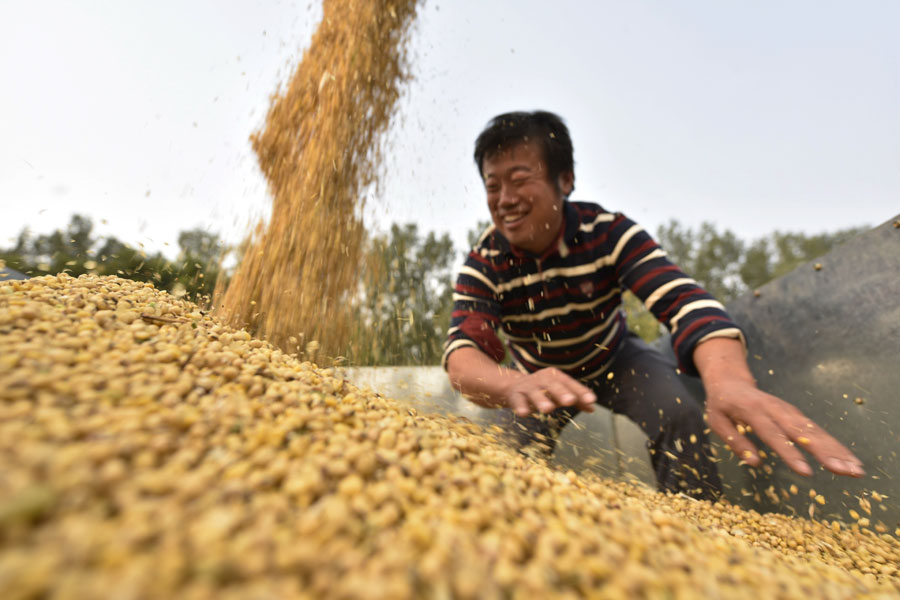Subsidies help soybean farmers grow their business






More support urged
Ji, from the Agriculture and Rural Affairs Bureau in Wudalianchi city, said domestic development of soybeans still faces many challenges, including higher production costs than for imported products, and a lack of processing services for the domestic crop. Higher subsidies for soybean exports from some countries mean the produce can be sold in China at even lower prices, worsening the situation for the domestically produced crop, he said.
"Authorities should formulate more policies to support development of the soybean industry, and provide more support for the production of non-GM soybeans through financial subsidies and insurance coverage.
"Subsidies should not only cover farmers who plant soybeans, but also other factors such as the research and development of soybeans, logistics, processing and consumption."
Ji said the authorities could provide more support for soybean insurance coverage, to enable farmers to be better prepared for losses stemming from natural disasters. More efforts should also be made to promote domestically produced soybeans to increase exports.
In addition, more should be done to protect the environment in major soybean production areas to improve the production and quality of the crop, he said.














